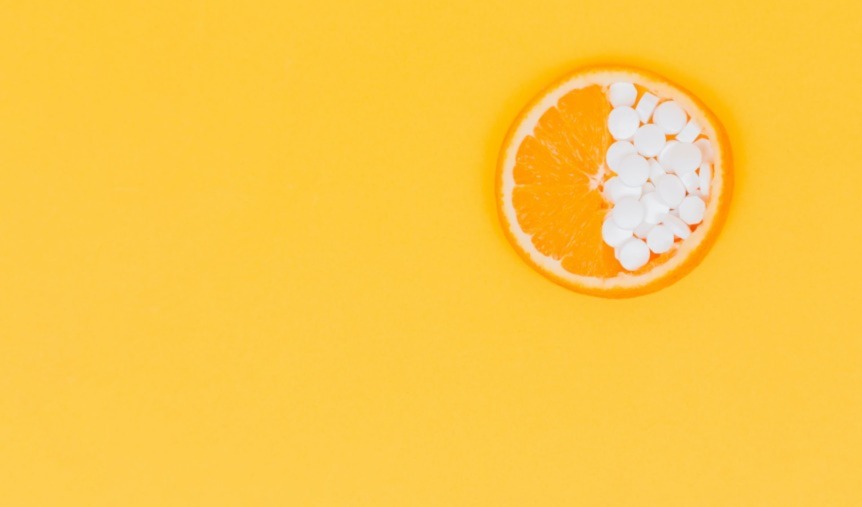In a previous post we explored the link between nutrition and mental health. Research from the new field of nutritional psychiatry has shown that high quality nutrition improves mental health, and can even lead to remission of depression in some patients (Jacka et al., 2017). But how? In this post we will dive into the mechanisms. There is mounting scientific evidence that three biological processes play a central role. These are inflammation, the gut microbiome and neuroplasticity.
Inflammation
When we are injured or our body is infected with a pathogen like a bacterium or virus, our immune system springs into action by creating inflammation. When this response flares up and then dies down it’s called acute inflammation. Acute inflammation only affects the localized area of the body under attack. This “good inflammation” limits the spread of pathogens, destroys the invaders and begins healing damaged tissues.
But sometimes the inflammatory response flares up and doesn’t completely die down, creating a long-lasting, low-grade activation of the immune system. This systemic (whole-body) chronic inflammation is a problem because there is growing evidence that both mental health conditions like depression and brain health conditions like Alzheimer’s are inflammatory diseases (Belliveau et al., 2022; Berk et al., 2013; Guzman-Martinez et al., 2019).
Where exactly does this inflammation come from? Berk and colleagues (2013) conducted a review of the scientific literature and identified a poor diet and physical inactivity among the many factors associated with systemic inflammation. By contrast, the Mediterranean diet has been shown to be anti-inflammatory by measuring a range of biomarkers such as C-reactive protein, homocysteine and interleukin-6 in the blood of clinical trial participants (Chrysohoou et al., 2004).
The Mediterranean diet is a rich source of omega-3 fatty acids and antioxidant phytochemicals (colorful plant pigments). Omega-3 fatty acids are precursors to molecules involved in signaling the end of the inflammatory process whereas antioxidants play a role in the prevention of inflammation (Monash University, n.d.).
Gut microbiome
We host a diverse array of microbes (microorganisms too small to be seen without a microscope) on our skin surface and in our digestive, respiratory, urinary and reproductive tracts (Liang et al., 2018). Another name for the collection of ‘bugs’ in and on our body is the microbiota. Our microbiota includes bacteria, archaea, fungi, viruses and protozoa (Sender et al., 2016).
According to the most recent estimates, there are 30 trillion (30,000,000,000,000) cells in the human body, but we host around 38 trillion bacterial cells (Sender et al., 2016). This means human cells are outnumbered by bacterial cells. Put another way, we are only about 43% human (Gallagher, 2018)!
There is an alternate calculation. The sum total of the genetic material (called the genome) of the human body is hard to pin down, but believed to be around twenty thousand genes (Willyard, 2018). By contrast the microbiome (the genetic material of our microorganisms) includes between two and twenty million genes (Gallagher, 2018). So, genetically, we are even more outgunned.
What all of this means is that although we tend to think of ourselves as a single species, Homo sapiens, we are actually a superorganism: a communal group of human cells and microbial species working together for the benefit of both (Dietert, 2016). “Good bacteria” are referred to as probiotics and include Lactobacillus (also known as Acidophilus) and Bifidobacteria species. They help our body digest food, absorb nutrients and fight “bad” organisms that cause disease (pathogens) (Duggal, 2017; Robertson, 2017; WebMD, 2020). A more diverse microbiome, one with more species of microorganisms, is considered healthier.
Traditional diets include fermented foods such as yogurt, aged cheese, pickles, kefir, sauerkraut, kimchi and sour cream. These foods are a source of probiotic bacteria. By consuming different types of fermented foods, we can introduce a more diverse array of naturally occurring probiotics and therefore improve our gut microbiota composition (Food and Mood Centre & Deakin University, n.d.).
Our bodies are unable to digest the dietary fiber in the Mediterranean diet. However, our microbes rely on this fiber as a food source. (We call dietary fiber a prebiotic as it feeds probiotic microorganisms.) When consuming fiber, the probiotic microorganisms produce waste products called short chain fatty acids (SCFAs). These are vitally important to our health as they are both anti-inflammatory (Campos-Perez & Martinez-Lopez, 2021) and thought to act directly on the brain (Silva et al., 2020).
One of the largest sites harboring the microbiota is the gastrointestinal tract, or ‘gut’. Scientists are just beginning to understand the enormous role that the gut microbiota plays in regulating the development and function of our immune, metabolic and nervous systems. Through these systems the gut microbiota influences the cognitive and emotional centers of the brain. The influence also happens in the other direction with the brain influencing the gut (Food and Mood Centre & Deakin University, n.d.). This bidirectional communication is referred to as the microbiota-gut-brain axis (Morais et al., 2021).
The human microbiome can be challenged by changes in diet, particularly those associated with modern dietary habits and food production methods (Liang et al., 2018). The microbiome is also affected by stress and antibiotics (Clapp et al., 2017). Such assaults can cause dysbiosis – the killing off of some species leading to a reduction in diversity, the loss of good bacteria or a rise in disease-causing bad bacteria (Brennan, 2021). A dysbiotic state leads to leaky gut syndrome and inflammatory mental health conditions such as depression and anxiety (Clapp et al., 2017).
A recent study published in the prestigious British Medical Journal, Gut reported the impact of a 12-month Mediterranean diet intervention in older people (Ghosh et al., 2020). The researchers found that participants who adhered to the diet changed their microbiomes, increasing the species associated with improved cognitive function and less inflammation. The authors concluded that improving the diet of older people to modulate the gut microbiota has the potential to promote healthier aging.
Learn more about the microbiome
Watch this 4-minute video produced by the prestigious scientific journal Nature about the development of our microbiome and the many roles gut microbiota play in human health, including our mental health.
Neuroplasticity
Until fairly recently it was scientific dogma that adult brains could not grow new neurons (nerve cells). However, in 1998 Eriksson and colleagues discovered neurogenesis (the growth of new neurons) in an area of the brain called the hippocampus. This led to the understanding that the adult brain is neuroplastic, that is, able to rewire itself. This capacity greatly enhances its function. The hippocampus is of particular interest to mental and brain health as it is involved in mood regulation (relevant to depression) as well as learning and memory (relevant to cognitive decline as we age) (Toda et al., 2019).
Jacka and colleagues (2015) conducted the first human study using brain scans to explore the effects of diet on the brain. This study, involving 250 older Australians, confirmed results that had previously only been observed in animal studies; that lower intakes of nutrient-dense foods and higher intakes of unhealthy foods are associated with smaller left hippocampal size. This finding, that what we eat affects the size of particular brain regions (and therefore directly impacts neuroplasticity), was later replicated in a much larger study in the Netherlands involving over 4,000 participants (Croll et al., 2018).
What this research on inflammation, the gut microbiome and neuroplasticity tells us is that nutrition affects the brain in many different ways. It is an inescapable fact that what we put in our mouths matters not just for our physical health, but for our mental and brain health also.
Key takeaways
- Studies from the new field of nutritional psychiatry have definitively demonstrated that consuming a high quality diet causes an improvement in symptoms of mental health conditions such as depression.
- Research shows that the underlying mechanisms are a reduction in inflammation, an increase in the diversity of the gut microbiota and greater capacity for neuroplasticity due to reduced wasting of a brain region called the hippocampus.
- The Mediterranean diet and traditional diets are examples of high quality diets. The Western diet provides low quality nutrition.
References:
- Belliveau, R., Horton, S., Hereford, C., Ridpath, L., Foster, R., & Boothe, E. (2022). Pro-inflammatory diet and depressive symptoms in the healthcare setting. BMC Psychiatry, 22(1), 125. https://doi.org/10.1186/s12888-022-03771-z
- Berk, M., Williams, L. J., Jacka, F. N., O’Neil, A., Pasco, J. A., Moylan, S., Allen, N. B., Stuart, A. L., Hayley, A. C., Byrne, M. L., & Maes, M. (2013). So depression is an inflammatory disease, but where does the inflammation come from? BMC Medicine, 11(1), 200. https://doi.org/10.1186/1741-7015-11-200
- Brennan, D. (2021). What Is Dysbiosis? WebMD. Retrieved from https://www.webmd.com/digestive-disorders/what-is-dysbiosis
- Campos-Perez, W., & Martinez-Lopez, E. (2021). Effects of short chain fatty acids on metabolic and inflammatory processes in human health. Biochimica et Biophysica Acta (BBA) – Molecular and Cell Biology of Lipids, 1866(5), 158900. https://doi.org/10.1016/j.bbalip.2021.158900
- Chrysohoou, C., Panagiotakos, D. B., Pitsavos, C., Das, U. N., & Stefanadis, C. (2004). Adherence to the Mediterranean diet attenuates inflammation and coagulation process in healthy adults: The ATTICA Study. J Am Coll Cardiol, 44(1), 152-158. https://doi.org/10.1016/j.jacc.2004.03.039
- Clapp, M., Aurora, N., Herrera, L., Bhatia, M., Wilen, E., & Wakefield, S. (2017). Gut microbiota’s effect on mental health: The gut-brain axis. Clinics and practice, 7(4), 987-987. https://doi.org/10.4081/cp.2017.987
- Croll, P. H., Voortman, T., Ikram, M. A., Franco, O. H., Schoufour, J. D., Bos, D., & Vernooij, M. W. (2018). Better diet quality relates to larger brain tissue volumes: The Rotterdam Study. Neurology, 90(24), e2166-e2173. https://doi.org/10.1212/wnl.0000000000005691
- Dietert, R. (2016). The Human Superorganism: How the Microbiome Is Revolutionizing the Pursuit of a Healthy Life. Dutton.
- Duggal, N. (2017). Bifidobacterium Bifidum: Benefits, Side Effects, and More. Healthline. Retrieved from https://www.healthline.com/health/bifidobacterium-bifidum
- Eriksson, P. S., Perfilieva, E., Björk-Eriksson, T., Alborn, A.-M., Nordborg, C., Peterson, D. A., & Gage, F. H. (1998). Neurogenesis in the adult human hippocampus. Nature Medicine, 4(11), 1313-1317. https://doi.org/10.1038/3305
- Food and Mood Centre, & Deakin University. (n.d.). Food and Mood: Improving Mental Health Through Diet and Nutrition. FutureLearn. Retrieved 2022 from https://www.futurelearn.com/courses/food-and-mood
- Gallagher, J. (2018). More than half your body is not human, Study Shows. BBC News. Retrieved from https://www.bbc.com/news/health-43674270
- Ghosh, T. S., Rampelli, S., Jeffery, I. B., Santoro, A., Neto, M., Capri, M., Giampieri, E., Jennings, A., Candela, M., Turroni, S., Zoetendal, E. G., Hermes, G. D. A., Elodie, C., Meunier, N., Brugere, C. M., Pujos-Guillot, E., Berendsen, A. M., De Groot, L. C. P. G. M., Feskins, E. J. M., . . . O’Toole, P. W. (2020). Mediterranean diet intervention alters the gut microbiome in older people reducing frailty and improving health status: the NU-AGE 1-year dietary intervention across five European countries. Gut, 69(7), 1218-1228. https://doi.org/10.1136/gutjnl-2019-319654
- Guzman-Martinez, L., Maccioni, R. B., Andrade, V., Navarrete, L. P., Pastor, M. G., & Ramos-Escobar, N. (2019). Neuroinflammation as a Common Feature of Neurodegenerative Disorders [Review]. Frontiers in Pharmacology, 10. https://doi.org/10.3389/fphar.2019.01008
- Jacka, F. N., Cherbuin, N., Anstey, K. J., Sachdev, P., & Butterworth, P. (2015). Western diet is associated with a smaller hippocampus: a longitudinal investigation. BMC Medicine, 13(1), 215. https://doi.org/10.1186/s12916-015-0461-x
- Jacka, F. N., O’Neil, A., Opie, R., Itsiopoulos, C., Cotton, S., Mohebbi, M., Castle, D., Dash, S., Mihalopoulos, C., Chatterton, M. L., Brazionis, L., Dean, O. M., Hodge, A. M., & Berk, M. (2017). A randomised controlled trial of dietary improvement for adults with major depression (the ‘SMILES’ trial). BMC Medicine, 15(1), 23. https://doi.org/10.1186/s12916-017-0791-y
- Liang, S., Wu, X., & Jin, F. (2018). Gut-Brain Psychology: Rethinking Psychology From the Microbiota–Gut–Brain Axis. Front Integr Neurosci., 12, 33. https://doi.org/10.3389/fnint.2018.00033
- Monash University. (n.d.). Differences between antioxidant food and anti-inflammatory food. FutureLearn. Retrieved from https://www.futurelearn.com/info/courses/fam-inflammation/0/steps/34322
- Morais, L. H., Schreiber, H. L., & Mazmanian, S. K. (2021). The gut microbiota–brain axis in behaviour and brain disorders. Nature Reviews Microbiology, 19(4), 241-255. https://doi.org/10.1038/s41579-020-00460-0
- nature video. (2019). The microbes that live with us from cradle to grave. https://www.youtube.com/watch?v=c_ZRZkU-FEw
- Robertson, R. (2017). 9 Ways Lactobacillus Acidophilus Can Benefit Your Health. Healthline. Retrieved from https://www.healthline.com/nutrition/lactobacillus-acidophilus
- Sender, R., Fuchs, S., & Milo, R. (2016). Revised Estimates for the Number of Human and Bacteria Cells in the Body. PLOS BIOLOGY, 14(8), e1002533. https://doi.org/10.1371/journal.pbio.1002533
- Silva, Y. P., Bernardi, A., & Frozza, R. L. (2020). The Role of Short-Chain Fatty Acids From Gut Microbiota in Gut-Brain Communication [Review]. Frontiers in Endocrinology, 11. https://doi.org/10.3389/fendo.2020.00025
- Toda, T., Parylak, S. L., Linker, S. B., & Gage, F. H. (2019). The role of adult hippocampal neurogenesis in brain health and disease. Molecular Psychiatry, 24(1), 67-87. https://doi.org/10.1038/s41380-018-0036-2
- (2020). Lactobacillus – Uses, Side Effects, and More. Retrieved from https://www.webmd.com/vitamins/ai/ingredientmono-790/lactobacillus
- Willyard, C. (2018). New human gene tally reignites debate. Nature. Retrieved from https://www.nature.com/articles/d41586-018-05462-w



